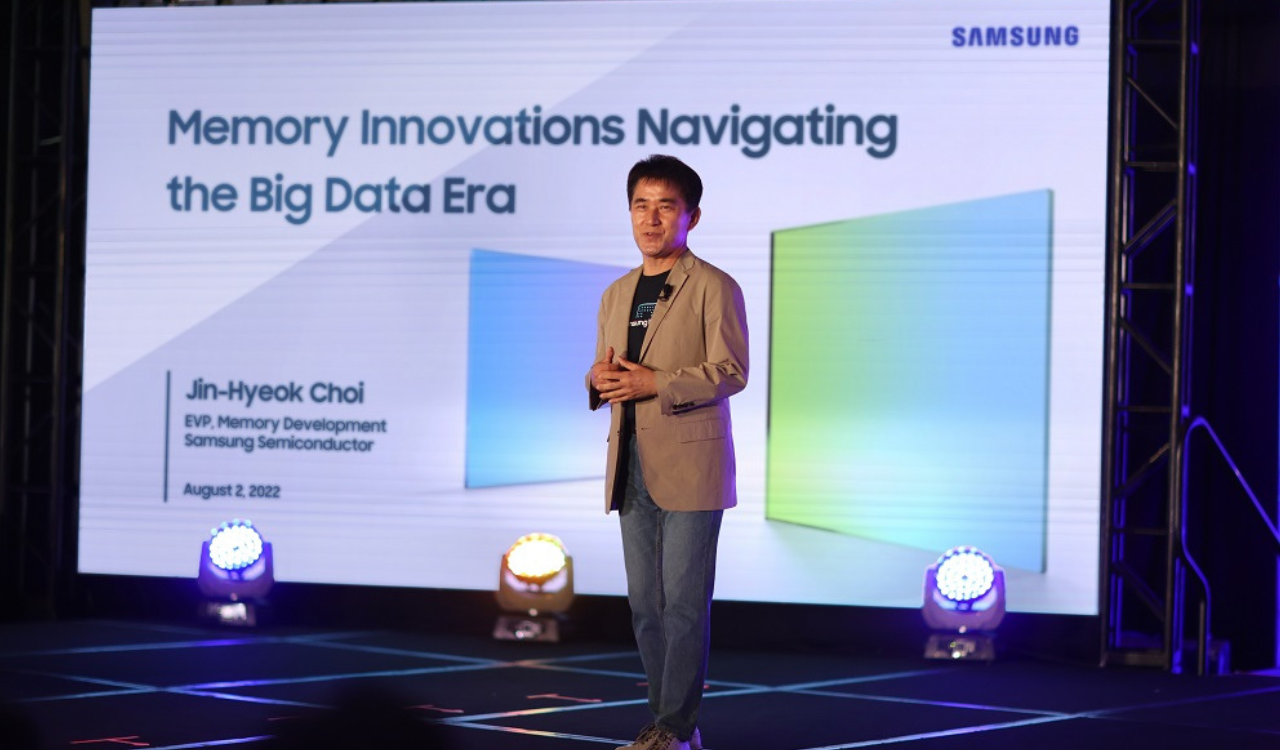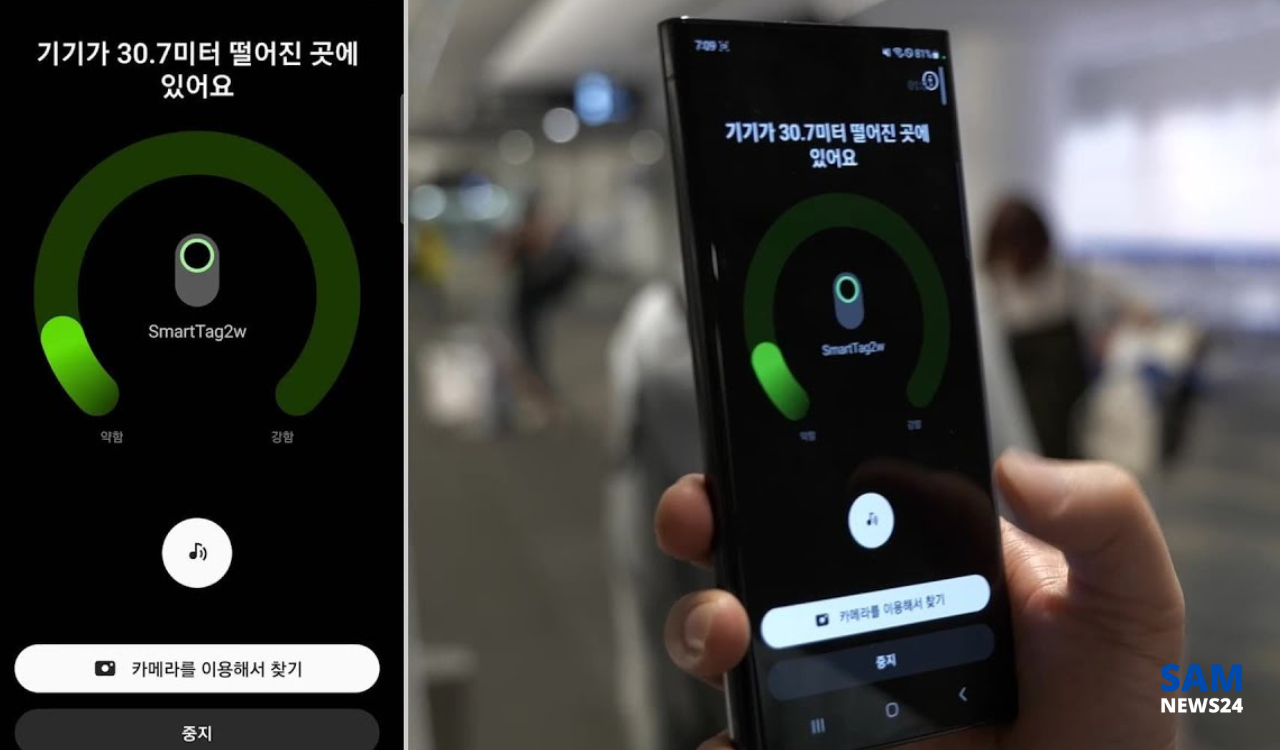Samsung Electronics is the pioneer name and the world leader in advanced cutting-edge technologies unveiled an array of next-generation memory and storage technologies during Flash Memory Summit 2022, held at the Santa Clara (California) Convention Center, August 2-4.
The South Korean tech giant, in its keynote titled “Memory Innovations Navigating the Big Data Era”, highlighted the four areas of technological advancements which drive the big data market, as follows:
- Data movement,
- Data storage,
- Data processing and
- Data management.

Petabyte Storage: Enhancing Server Utilization
For using the data centre efficiently in an outburst data-driven world, it is important to have a solution that Samsung introduces- a next-generation storage technology, ‘Petabyte Storage.’
The new enhanced solution will now allow a single server unit to pack more than one petabyte of storage altogether, which enables server manufacturers to substantially increase their storage capacity within the same floor space. This will achieve with a minimal number of servers and higher server utilization leads to lower power consumption.
Memory-Semantic SSD: AI- and ML-Optimized Storage
The Announced ‘Memory-semantic SSD’ combines the benefits of both storage and DRAM memory. Also, with the Leveraging Compute Express Link (CXL) interconnect technology and a built-in DRAM cache, Memory-semantic SSDs can achieve up to a 20x improvement in both random read speed and latency when used in AI and ML applications.
It optimises and compelling faster the speeds of reading and writing small-sized data chunks. Whereas, Samsung’s Memory-semantic SSDs will be ideal for the growing number of AI and ML workloads that require very fast processing of smaller data sets respectively.
Also check: Samsung made 2nd Gen SmartSSD with more performance
Telemetry: Enabling More Reliable Data Center Management
With an increase in the number of SSDs which are now becoming more widely adopted across data centres, hence we require technology to manage these storage drives. At the same time, the highest degree of reliability is becoming increasingly complex. Now, this would be overcome through Samsung’s telemetry technology which gathers human-readable metadata from key components inside customers’ SSDs such as NAND flash and DRAM as well as SSD controllers and firmware. Now based on this broad set of telemetry information, data centres can detect and prevent any potential problems prior, which then enables a more reliable and efficient operation.
Updates to Prior Milestones
Apart from this, Samsung informed its key audience about its previously announced mobile storage and high-performance SSD milestones. Back in May, Samsung developed, the industry’s first UFS 4.0 mobile storage. Now, the UFS 4.0 enters into mass production this month. It going to be a crucial component feature in flagship smartphones (as per rumours than in Galaxy S23) that require large amounts of data processing for features like high-resolution images and graphics-heavy mobile games
“The IT industry is facing a new set of challenges brought on by the explosive growth in big data, and this underscores the importance of a robust, cross-industry ecosystem,” said Jin-Hyeok Choi, keynote speaker and executive vice president of Memory Solution & Product Development at Samsung Electronics. “We are committed to developing transformative memory technologies that can bring far-reaching changes in how we move, store, process and manage data for future AI, ML and HPC applications, as we navigate these challenging tides together with industry partners.”



























